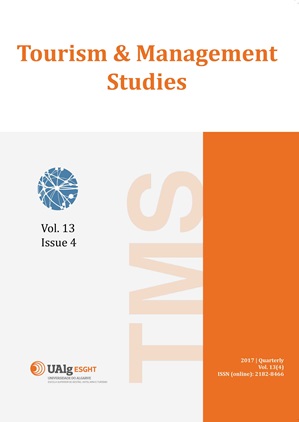The complex interaction between Human Resources Management, the Labor Market and Employment Relations in Brazil
DOI:
https://doi.org/10.18089/Keywords:
human resources management, HRM, labor market, employment relationsAbstract
This article reports results of qualitative research that examines how the literature available of human resource management (HRM) addresses the new characteristics of employment in Brazil in the 2000-2015 period; with an aging population, a reduction in the share of young people and increased educational level of the workforce, a drop in the number of non-employed, higher income for workers and a high rate of turnover. In employment relations, the trade unions obtained real raises above inflation and strikes have returned. Through a panel of specialists and literature on human resources management in Brazil, the study reveals a distance between the subjects of labor market, employment relations and HRM. Two hypotheses could explain these findings: (H1) labor relation and labor market issues are of little value to HRM; and (H2) HRM and employment relations are treated as different professional areas and fields of knowledge, and are poorly integrated in organizations.
References
Amorim, W.A.C. (2015). Negociações coletivas no Brasil. São Paulo: Atlas.
Barbosa, A.C.Q. (2005) Relações de trabalho e recursos humanos. Revista de Administração de Empresas, 45(1), 121-126.
Brewster, C. (2007) Comparative HRM: European views and perspectives. International Journal of Human Resource Management, 18(5), 769-787.
Brewster, C., Mayrhofer, W. & Reichel, A. (2011). Riding the tiger? Going along with Cranet for two decades: a relational perspective. Human Resource Management Review, 21, 5–15.
Caldas, M. & Tinoco, T. (2004). Pesquisa em gestão de recursos humanos nos anos 1990: um estudo bibliométrico. Revista de Administração de Empresas, 44(3), 100-114.
Carrieri, A.P., & Sarsur, A. M. (2004). Percurso semântico do tema empregabilidade: a (re)construção de parte da história de uma empresa de telefonia. Revista de Administração Contemporânea, 8(1), 129-150
Carvalho Neto, A. (2012). Relações de Trabalho e Gestão de Pessoas: entre o macro e o micro? Provocações epistemológicas. REGE. Revista de Gestão USP, 19, 297-306.
Creswell, J.W. (2010). Projeto de Pesquisa. Porto Alegre: Artmed.
Cruz, M.V.G.; Sarsur, A.M. & Amorim, W.A.C. (2012). Gestão de competências nas relações de trabalho: o que pensam os sindicalistas? Revista de Administração Contemporânea, 16(5), 705-722.
Delbridge, R.; Hauptmeier, M. & Sengupta, S. (2011). Beyond the enterprise: broadening the horizons of International HRM. Human Relations, 64(4), 483-505.
DIEESE. (2016). Balanço das negociações dos reajustes salariais de 2015. Estudos e Pesquisas, 80.
Fischer, A.L. & Albuqueque, L.G. (2005). Trends of the human resources management model in Brazilian companies: a forecast according to opinion leaders from the area. The International Journal of Human Resource Management, 16(7), 1211-1227.
Fleury, M.T.L. & Fischer, R.M. (1992). Relações de trabalho e políticas de gestão: uma história das questões atuais. Revista de Administração USP, 27, 5-15.
Fleury, M.T.L. & Fleury, A.C.C. (2005). In search of competence: aligning strategy and competences in the telecommunications industry. International Journal of Human Resource Management, 16 (9), 1640-1655.
Hemmert, D.D.M. & Waldenberger, J.L.H.M. (2000). The Japanese employment system in transition. International Business Review, 9(5), 525-553.
IBGE. (2015). Pesquisa Mensal de Emprego. Principais destaques da evolução do Mercado de trabalho nas regiões metropolitanas abrangidas pela pesquisa. Indicadores IBGE. Rio de Janeiro: IBGE.
Itzhak, H. & Meshoulam, I. (2010). The meaning of work, employment relations and strategic human resources management in Israel. Human Resource Management Review, 20(3), 212-223.
Kaufman, B.E. (2010). The theoretical foundation of industrial relations and its implications for labor economics and human resource management. Industrial and Labor Relations Review, 64(1), 74-107.
Leite, M.P. & Salas, C. (2014). Trabalho e desigualdades sob um novo modelo de desenvolvimento. Tempo Social, 26(1), 87-100.
Lima, T. C., & Mioto, R. C. T. (2007). Procedimentos metodológicos na construção do conhecimento científico: a pesquisa bibliográfica. Revista Katálysis, 10(2), 37-45.
Maia, A. G., & Menezes, E. (2014). Economic growth, labor and productivity in Brazil and the United States: a comparative analysis. Revista de Economia Política, 34(2), 212-229.
May, T. (2004). Pesquisa social: questões, métodos e processos. Porto Alegre: Artmed.
Mayrhofer, W. et al. (2004). Convergence, stasis or divergence? In: C. Brewster et al. (Eds.). Human Resource Management in Europe. Evidence of Convergence? London: Elsevier Butterworth-Heinemann.
Minayo, M.C.S. (2010). Los conceptos estructurantes de la investigación cualitativa. Salud Colectiva, 6(3), 251-261.
Mitchell, D.J.B. (2001). IR journal and conference literature from the 1960s to the 1990s: what can HR lean from it? Where is it headed? Human Resource Management Review, 11(4), 375-393.
Morley, M. J. et al. (2012). The transition states of Central and Eastern Europe and the Former Soviet Union. In: C. Brester, & W. Mayrhofer (Orgs.). Handbook of research on comparative human resource management. Cheltenham: Edward Elgar Publishing.
MTE. (2014). CAGED/RAIS. PDET - Programa e Disseminação de Estatísticas do Trabalho. Ministério do Emprego e do Trabalho.
Ollo-Lopez, A.; Bayo-Moriones, A. & Larranza-Kintana, M. (2011). The impact of country level factors on the use of new work practices. Journal of World Business, 46(3), 394-403.
Parry, E., Stavrou-Costea, E. & Morley, M.J. (2011). The Cranet International Research Network on Human Resource Management in retrospect and prospect. Human Resource Management Review, 21, 1–4.
Piola, S.F., Vianna, S.M., & Vivas-Consuelo, D. (2002). Estudo Delphi: atores sociais e tendências do sistema de saúde brasileiro. Cadernos de Saúde Pública, 18(Suppl.), S181-S190.
Sá-Silva, J.R., Almeida, C.D. & Guindani, J.F. (2009). Pesquisa documental: pistas teóricas e metodológicas. Revista Brasileira de História e Ciências Sociais, 1(1), 11-25.
Terry, W.C. (2011). Geographic limits to global labor market flexibility: the human resources paradox of the cruise industry. Geoforum, 42(6), 660-670.
Wood Jr., T., Tonelli, M. J. & Cooke, B. (2011). Colonização e neocolonização da gestão de recursos humanos no Brasil (1950-2010). Revista de Administração de Empresas, 51(3), 232-243.
Downloads
Published
Issue
Section
License
Copyright (c) 2017 Tourism & Management Studies

This work is licensed under a Creative Commons Attribution-NoDerivatives 4.0 International License.
The journal retains published articles’ copyrights, but they are simultaneously licensed under the Creative Commons Attribution License (CC BY-NC-ND), which allows individuals’ to share the relevant papers as long as authorship and publication in this journal are duly acknowledged.



